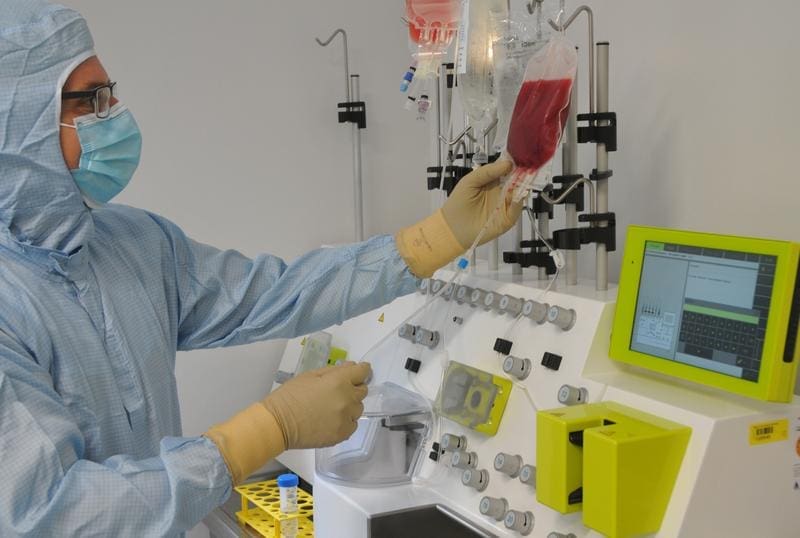20 years of stem cell therapy: W├╝rzburg University Hospital as a European showcase center
The Center for Stem Cell Therapy at the University Hospital of W├╝rzburg (UKW) was founded two decades ago. Today, it is an internationally recognized treatment center that provides patients from all over Germany and abroad with innovative cell therapies. In addition to traditional autologous and foreign transplants of blood stem cells, the center relies on state-of-the-art procedures such as CAR-T cell therapy.
The Medical Clinic II and the Children’s Clinic run the center together. In autologous transplantation, blood stem cells are obtained from the patient’s own blood or bone marrow, while donor cells are used in the allogeneic variant. Adults are mainly treated for malignant diseases such as acute leukemia, lymphoma or multiple myeloma, with the latter being a focus of autologous transplantation. In children and adolescents, blood stem cell transplants are also increasingly being used for non-malignant blood diseases, often in combination with other immunotherapies. Thanks to increased procedural safety, the treatment has become established.
A donor with matching tissue characteristics is crucial for allogeneic transplants. Over ten million potential donors are registered in Germany and 41 million worldwide, which means that the probability of finding a suitable donor is over 90 percent. If no optimal donor is available, suboptimal donor cells can be processed at the UKW under clean room conditions – a service that only a few centers in Germany offer. Each year, the center performs around 120 allogeneic and up to 200 autologous transplants, a top figure in Germany.

Since 2019, the Center for Cellular Immunotherapy (ZenITh) has been supplementing this work with innovative approaches such as CAR-T cell therapy. This involves equipping the body’s own T lymphocytes in the laboratory with an artificial receptor that enables them to specifically attack tumor cells. This therapy is now an integral part of the treatment of leukemia, lymphoma and multiple myeloma and is often combined with blood stem cell transplants. Every year, the UKW carries out around 100 CAR-T cell therapies in adults and around five in children, making it the leading center of its kind in Europe.
The center was established in 2005 with the inauguration of a new building, financed by the Free State of Bavaria and the Federal Republic of Germany. A fundraising campaign by “Aktion Stammzelltherapie”, initiated by W├╝rzburg businesswoman Gabriele Nelkenstock and supported by the W├╝rzburg Parents’ Initiative for Children with Leukemia and Tumors, raised over 500,000 euros and provided the impetus for the financing. The in-house GMP cell therapy laboratory supplies not only the UKW but also other clinics with customized stem cell preparations and serves as a logistics hub for CAR-T cells. In fall 2025, a new clean room laboratory is to be opened to produce CAR-T cells for clinical trials in-house.
Research focuses on the further development of CAR-T cell therapy, particularly in combination with allogeneic transplants and for solid tumors. Clinical trials are testing new target structures and the adaptation of T cells to the tumor environment in order to improve their survival and efficacy. Recently, a study on brain tumors in children was completed and a new study on solid tumors and lymphomas in adults was started. New professorships and working groups, including some with international experts, underline the anchoring of cell therapy at the UKW. This means that patients in the region benefit from state-of-the-art therapeutic approaches.
Read also:
Study: Stem cells also have surface proteins that inhibit inflammatory reactions – MedLabPortal
Post-treatment blood test could influence future cancer treatment decisions – MedLabPortal
Fraunhofer breakthrough: Automated long-term cultivation of stem cells successful – MedLabPortal
Editorial office: X-Press Journalistenb├╝ro GbR
Gender note. The personal designations used in this text always refer equally to female, male and diverse persons. Double/triple references and gendered designations are avoided in favor of better readability.




